محاکمه توسط هیئت منصفه
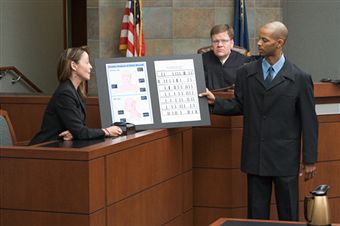
Trial by Jury
If you are a citizen of Canada or the United States, it is very likely that you will be summoned at some time for jury duty. A letter will come in the mail, telling you to report to a certain place at a given time. There are legal penalties for not attending, because jury duty is considered every citizen’s responsibility. Often a large number of people, perhaps several hundred, will be summoned at one time.
When you arrive, you will join a line-up of others who are registering for duty. Eventually, you will get to a table and talk to an official. If you have a special reason for not being a juror, such as ill health, you may be excused at this point. Those not immediately exempted become a part of a “jury panel.” Out of this panel, a number of juries of twelve people will be chosen. These will decide a variety of criminal cases over the next few weeks.
What follows is the experience of one woman in a “jury pool.” She went with the others into a large courtroom where they spent the whole day. At the front of the courtroom were the judge, and the lawyers for the prosecution and for the defence. One of the lawyers explained what the case was going to be about. The names of the jury panel were in a box at the front. When someone’s name was called, they went up to the front of the courtroom.
The person called up would then have a chance to explain why they couldn’t serve as a juror, if there was some reason preventing them. For example, one woman was dismissed because she knew the accused. The first jury to be chosen was for a burglary case. A panel member went forward and faced the accused. Then the lawyers in the trial decided whether the juror was satisfactory to them. At lunchtime, the panel was dismissed for an hour.
The second jury was to try someone on a charge of murder. Usually the panel was told approximately how long the trial might be. Since jurors are not usually paid, many would like to avoid being involved in a long trial. The woman was called forward and had to look the man accused of murder in the eye. This made her quite nervous. Judging by her expression, the two lawyers would decide whether they wanted her on the jury or not. The defence lawyer would try to choose someone who seemed sympathetic to the man accused. The prosecutor would prefer someone who was not sympathetic. The woman excused herself by saying that she had a very young child to look after and no relatives to help. She was allowed to go home at the end of the day.
Some people wonder whether it is fair for lawyers to dismiss jurors who may not be sympathetic to their cases. For example, defence lawyers may try to choose young people if they think that these will be less severe to their clients. In the case above, the lawyer seemed to prefer women to men. This means that a lot of people are dismissed from being jurors without a good reason.
One principle of the jury system, however, is to protect the rights of the accused particularly well. One might say that the jury system is biased in favour of the defendant. This is why defence lawyers have an opportunity to dismiss people who they think will not be favourable to their clients.
Furthermore, having twelve jurors gives the defence a good opportunity for a successful defence. If the defence attorney can raise a reasonable doubt about the guilt of his client in even one juror, then the accused has a chance of being released. This happened in the O.J. Simpson murder trial. There, even though there was strong evidence that Simpson committed the crime, the defence was able to insinuate some doubts among the jurors. Moreover, the defence lawyers may be able to appeal to the emotions of the jurors, particularly if they can think of a way to gain sympathy for their client.
For this reason, defence lawyers are more likely to choose trial by jury over trial by judge alone. A judge is less likely to be swayed by emotion than a jury. And a defence attorney may also prefer a criminal trial to a civil suit. In the latter case, the client does not have to be proven guilty beyond a reasonable doubt but will be found liable if the preponderance of evidence is against him or her. This is why O.J. Simpson was acquitted on criminal charges, but then found liable for damages in a civil suit.
summon

source 1
summon somebody (to do something) (formal)
to order somebody to appear in court
Synonym: summons
He was summoned to appear before the magistrates.
source 2
to order someone to come to a place:
Robert summoned the waiter for the bill.
summon somebody to something The president summoned Taylor to Washington.
summon somebody to do something He was summoned to attend an emergency meeting.
penalty

source 1
a punishment for breaking a law, rule or contract
to impose a penalty
Assault carries a maximum penalty of seven years’ imprisonment.
penalty (for something)The penalty for travelling without a ticket is £200.
Contractors who fall behind schedule incur heavy financial penalties.
a penalty clause in a contract
You can withdraw money from the account at any time without penalty.
Harsher penalties are being imposed for crimes involving firearms.
source 2
a punishment for breaking a law, rule, or legal agreement: No littering. Penalty $500.
Withdrawing the money early will result in a 10% penalty.
penalty for The penalty for a first offense is a fine.
severe/stiff/heavy penalty Drug dealers face severe penalties.
If he is convicted, he could receive the death penalty (=be killed as a punishment).
line-up

source 1
the people who are going to take part in a particular event
an impressive line-up of speakers
Jones has not been included in the quarter-final line-up.
the starting line-up (= the players who will begin the game)
source 2
a group of people, especially performers, who have agreed to be involved in an event:
The line-up included top bands Prodigy and Radiohead.
register
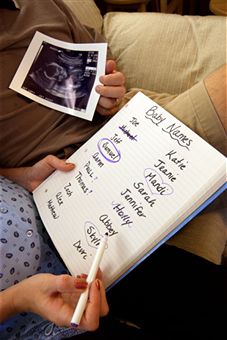
source 1
to record your/somebody’s/something’s name on an official list
register something to register a birth/marriage/death
to register a company/trademark
register something in something The ship was registered in Panama.
register somebody + adjective| register (somebody) as something She is officially registered (as) disabled.
register (with somebody/something) to register with a doctor
register (at/for something) to register at a hotel
source 2
to put someone’s or something’s name on an official list:
The tanker is registered in Rotterdam.
register for How many students have registered for English classes?
register with You must bring your insurance card with you when you register with a dentist or doctor.
register a birth/death/marriage The baby’s birth was registered this morning.
be registered (as) unemployed/disabled etc British English (=be on an official list of a particular group)
excuse

source 1
to allow somebody to not do something that they should normally do
She was excused from giving evidence because of her age.
source 2
1 to allow someone not to do something that they are supposed to do
excuse somebody from (doing) something Can I be excused from swimming today? I have a cold.
2 to give someone permission to leave a place:
May I please be excused from the table?
exempt

source 1
if somebody/something is exempt from something, they are not affected by it, do not have to do it, pay it, etc
The interest on the money is exempt from tax.
Some students are exempt from certain exams.
Infant mortality was extremely high and the upper classes were not exempt.
source 2
to give someone permission not to do or pay something
exempt somebody from something Charities are exempted from paying the tax.
a document that exempts the owner from liability in case of accidents
jury panel
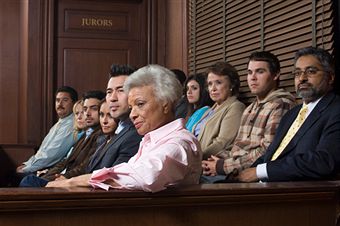
source 1
jury
source 2
a group of people who are chosen to listen to a case in a court of law and to decide the result [= jury]:
The panel spent 14 hours going over the evidence.
pool

source 1
a group of people available for work when needed
a pool of cheap labour
a typing pool (= a group of people who share a company’s typing work)
source 2
a group of people who are available to work or to do an activity when they are needed
pool of a pool of talented applicants to choose from
The region has a large and talented labour pool
the prosecution

source 1
a person or an organization that prosecutes somebody in court, together with the lawyers, etc
He was a witness for the prosecution.
The prosecution has/have failed to prove its/their case.
defence and prosecution
a prosecution lawyer
source 2
the lawyers who try to prove in a court of law that someone is guilty of a crime [↪ defence]:
the chief witness for the prosecution
WORD FOCUS: court
people in a court of law: judge, magistrate, jury, defence British English/defense American English, prosecution, defendant, witness, attorney, lawyer, barrister British English, solicitor British English, district attorney American English
what happens in a court case:At the beginning of the trial, the person who is accused pleads guilty or not guilty to the charges against them. The lawyers for the prosecution try to prove that the defendant is guilty, and the lawyers for the defence try to prove that their client is innocent. The judge and the jury examine the evidence and listen to the testimony of the witnesses. At the end of the trial, the judge then sums up the case, and the jury then gives their verdict. If the person is found guilty, the judge sentences them to a period of time in prison, or orders them to pay a fine. If the person is found not guilty, they are released
the accused

source 1
a person who is on trial for committing a crime
The accused was found innocent.
All the accused have pleaded guilty.
source 2
the person or group of people who have been officially accused of a crime or offence in a court of law
burglary

source 1
the crime of entering a building illegally and stealing things from it
Synonym: housebreaking
The youth was charged with three counts of burglary.
a rise in the number of burglaries committed in the area
source 2
the crime of getting into a building to steal things:
Burglaries have risen by 5%.
He was charged with burglary.
Most burglaries happen at night.
WORD FOCUS: crime
crimes that involve stealing things: robbery, burglary, theft, shoplifting, fraud, carjacking
crimes that involve attacking people : assault, mugging, murder, rape
someone who commits crimes: criminal, thief, crook, burglar, mugger, robber, pickpocket, rapist, offender, lawbreakercrime
client

source 1
a person who uses the services or advice of a professional person or organization
a lawyer with many famous clients
to act on behalf of a client
Social workers must always consider the best interests of their clients
source 2
someone who gets services or advice from a professional person, company, or organization [= customer]:
a meeting with an important client
WORD CHOICE: customer, client, patron, shopper, consumerCustomer is the most general word. A customer is someone who buys something from a particular shop. People who pay to use something such as a transport service can also be called customers A customer came in and bought several jackets.
Customers are advised that the next train is delayed.
A client is someone who pays for a service
a hairdresser and her clients
A patron of a particular restaurant, bar etc is someone who eats or drinks there. This is a fairly formal word and it is more usual to use customer Patrons are asked to refrain from smoking.
A shopper is someone who is involved in the activity of buying things from shops
The street was crowded with shoppers.
A consumer is anyone who pays for goods and services. This word is used especially when you are talking about people’s rights
Consumers have a right to know what they are buying.
defendant
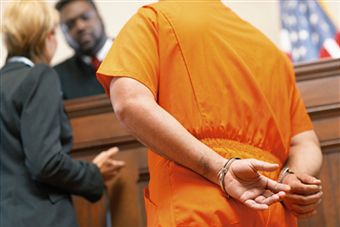
source 1
the person in a trial who is accused of committing a crime, or who is being sued by another person
Breaking the law
break/violate/obey/uphold the law
be investigated/arrested/tried for a crime/a robbery/fraud
be arrested/(especially North American English) indicted/convicted on charges of rape/fraud/(especially US) felony charges
be arrested on suspicion of arson/robbery/shoplifting
be accused of/be charged with murder/(especially North American English) homicide/four counts of fraud
face two charges of indecent assault
admit your guilt/liability/responsibility (for something)
deny the allegations/claims/charges
confess to a crime
grant/be refused/be released on/skip/jump bail
The legal processstand/await/bring somebody to/come to/be on trial
take somebody to/come to/settle something out of court
face/avoid/escape prosecution
seek/retain/have the right to/be denied access to legal counsel
hold/conduct/attend/adjourn a hearing/trial
sit on/influence/persuade/convince the jury
sit/stand/appear/be put/place somebody in the dock
plead guilty/not guilty to a crime
be called to/enter (British English) the witness box
take/put somebody on the stand/(North American English) the witness stand
call/subpoena/question/cross-examine a witness
give/hear the evidence against/on behalf of somebody
raise/withdraw/overrule an objection
reach a unanimous/majority verdict
return/deliver/record a verdict of not guilty/unlawful killing/accidental death
convict/acquit the defendant of the crime
secure a conviction/your acquittal
lodge/file an appeal
appeal (against)/challenge/uphold/overturn a conviction/verdict
Sentencing and punishmentpass sentence on somebody
carry/face/serve a seven-year/life sentence
receive/be given the death penalty
be sentenced to ten years (in prison/jail)
carry/impose/pay a fine (of $3000)/a penalty (of 14 years imprisonment)
be imprisoned/jailed for drug possession/fraud/murder
do/serve time/ten years
be sent to/put somebody in/be released from jail/prison
be/put somebody/spend X years on death row
be granted/be denied/break (your) parole
source 2
the person in a court of law who has been accused of doing something illegal [↪ plaintiff; = prisoner AmE]
We find the defendant not guilty.
dismiss
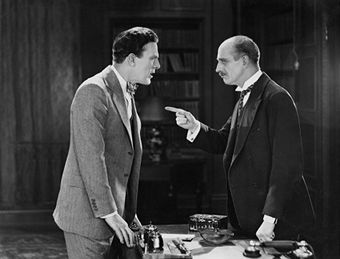
source 1
to send somebody away or allow them to leave
At 12 o’clock the class was dismissed.
source 2
to tell someone that they are allowed to go, or are no longer needed:
The class was dismissed early today.
commit

source 1
to do something wrong or illegal
to commit murder/adultery
Most crimes are committed by young men.
appalling crimes committed against innocent children
source 2
to do something wrong or illegal:
women commit fewer crimes than men.
commit murder/rape/arson etc Brady committed a series of brutal murders.
insinuate

source 1
to suggest indirectly that something unpleasant is true
Synonym: imply
insinuate that… The article insinuated that he was having an affair with his friend’s wife.
insinuate something What are you trying to insinuate?
an insinuating smile
source 2
to say something which seems to mean something unpleasant without saying it openly, especially suggesting that someone is being dishonest [= imply]
insinuate that Are you insinuating that the money was stolen?
What are you trying to insinuate?
emotion

source 1
a strong feeling such as love, fear or anger; the part of a person’s character that consists of feelings
He lost control of his emotions.
They expressed mixed emotions at the news.
Emotions are running high (= people are feeling very excited, angry, etc.).
The decision was based on emotion rather than rational thought.
She showed no emotion at the verdict.
Mary was overcome with emotion.
source 2
a strong human feeling such as love, hate, or anger:
Her voice was full of emotion.
conflicting/mixed emotions Sara listened with mixed emotions.
She was good at hiding her emotions.
Kim received the news without showing any visible sign of emotion.
sway

source 1
to persuade somebody to believe something or do something
Synonym: influence
He’s easily swayed.
She wasn’t swayed by his good looks or his clever talk.
source 2
to influence someone so that they change their opinion:
Don’t allow yourself to be swayed by his promises.
attorney

source 1
a lawyer, especially one who can act for somebody in court
Usage note: lawyers
Lawyer is a general term for a person who is qualified to advise people about the law, to prepare legal documents for them and/or to represent them in a court of law.
In England and Wales, a lawyer who is qualified to speak in the higher courts of law is called a barrister. In Scotland a barrister is called an advocate.
In North American English attorney is a more formal word used for a lawyer and is used especially in job titles: district attorney.
Counsel is the formal legal word used for a lawyer who is representing someone in court: counsel for the prosecution.
Solicitor is the British English term for a lawyer who gives legal advice and prepares documents, for example when you are buying a house, and sometimes has the right to speak in a court of law.
In North American English solicitor is only used in the titles of some lawyers who work for the government: Solicitor General.
source 2
a lawyer
liable
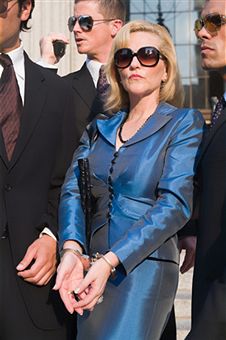
source 1
likely to be punished by law for something
Offenders are liable to fines of up to $500.
Advertisers pretending to be private individuals will be liable to prosecution.
source 2
legally responsible for the cost of something
liable for
people who are liable for income tax at a higher rate
preponderance
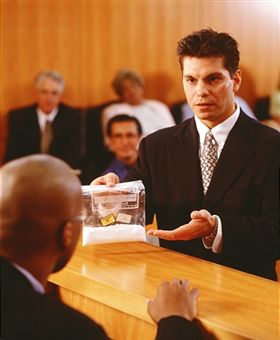
source 1
if there is a preponderance of one type of people or things in a group, there are more of them than others
Synonym: predominance
There is still a preponderance of male managers in the profession.
source 2
a preponderance of the evidence (law)
most of the evidence in a law case
acquit
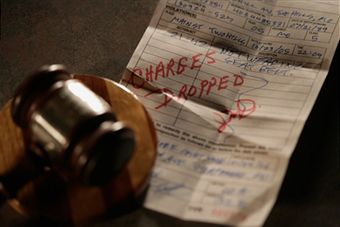
source 1
to decide and state officially in court that somebody is not guilty of a crime
The jury acquitted him of murder.
Both defendants were acquitted.
She was acquitted on all charges.
He was acquitted on the grounds of insufficient evidence.
Opposite: convict
source 2
to give a decision in a court of law that someone is not guilty of a crime:
All the defendants were acquitted.
acquit somebody of something The judge directed the jury to acquit Phillips of the murder.